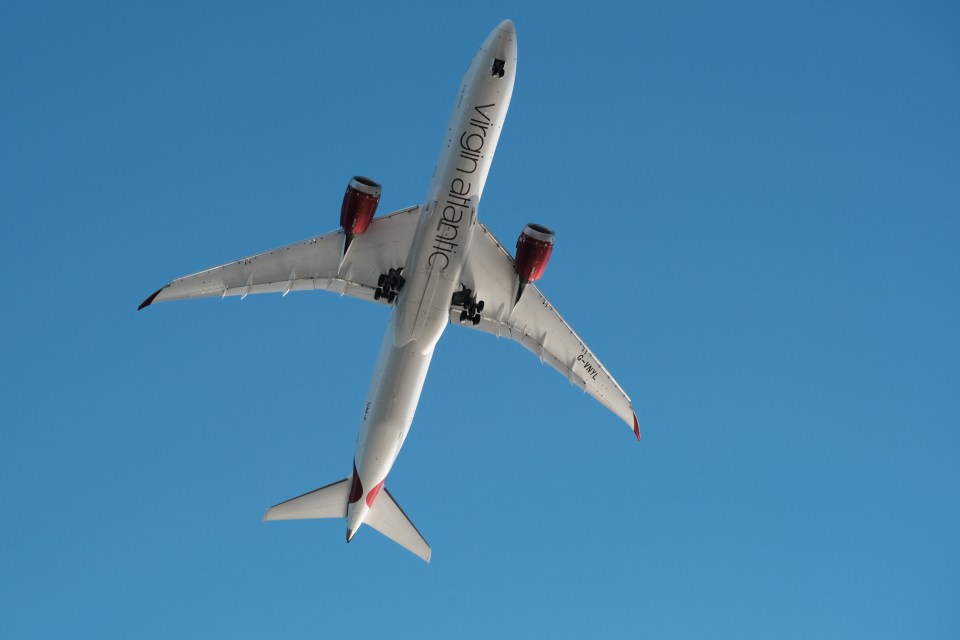Our relationship with China has been overhauled, but it’s still a crucial one for the City

Next Monday, Virgin Atlantic planes between London Heathrow and Shanghai will resume. This reopens many symbolic and actual possibilities for our relationship with China, writes Juha Jarvinen
On the last day of January 2020, Virgin Atlantic suspended all flights between London and Shanghai. Few could have predicted the scale of global crisis that would follow, or the way that UK businesses, especially airlines, would have to adapt to the loss of frictionless travel to major markets like China.
Shanghai was the first of many global cities to be cut off, sparking unprecedented upheaval. As an airline, we faced a previously unimagineable scenario of flying zero passengers for three months from April 2020. It’s now been more than three years since we stopped flights to China, but from next Monday, planes between London Heathrow and Shanghai will resume. The UK will once more be connected by a UK flag carrier to China’s business and financial hub, the epicentre of our second largest trading partner for goods.
As Covid-19 restrictions finally unwind, China remains a powerhouse of economic activity. Total trade in goods and services between the UK and China is worth £103.5bn per year and despite the pandemic, the Chinese economy grew by 8 per cent in 2021 and 3 per cent in 2022. It’s a two-way street. Chinese visitors to the UK surged between 2009 and 2019 as seat capacity on direct flights doubled, spending £1.7bn here in 2019 – the UK’s second most valuable inbound market.
For the City of London, it reopens a new chapter of UK-China financial opportunity. Three years of China’s stringent lockdowns and pursuit of a “zero Covid” strategy had a profound impact, and there is rightly scrutiny of its domestic and foreign policies. But as Foreign Secretary James Cleverly said last week, Britain should not “pull the shutters down”. The business community understandably looked to other parts of the world as choked supply chains added to the perfect storm, but those shutters are now reopening.
Airlines, like countless businesses with interests in China, had to be agile to respond to its closed borders. As part of decisive action to ensure survival, we expanded cargo-only flying, strapping boxes of PPE from China to seats ordinarily reserved for customers, and diversified our route network to new markets like Pakistan, while retiring less fuel-efficient Boeing 747s.
Another sign of the changed landscape is the added complexity for UK carriers serving Asian destinations, following the closure of Russian airspace. Despite longer journey times, connectivity with China remains vital both for the movement of people and crucial cargo. The return to Shanghai offers a barometer of pandemic recovery, evidence of the aviation sector’s return to strength and a milestone for UK plc – reinstating links that will help fulfil China’s market potential.
It’s a particularly significant moment for Virgin Atlantic, marking the day our flying programme is restored to full capacity for the first time since January 2020.
Despite macroeconomic headwinds, we’re seeing robust demand for international travel, including a corporate sector expected to reach 85 per cent of 2019 levels by the end of this year. A need for travel reiterated when Shanghai tickets went on sale in February.
Increasingly the compass is pointing to China and the scale of opportunity is huge as the country’s Covid restrictions unwind – one of the last markets to do so. As sectors like financial services, retail and consumer goods gradually open further, this will broaden.
We’ve made it through significant challenges with China over the last few years. This final reopening is a restart to the mutual opportunities for business and consumers in the UK, and helping restore our aviation sector.
